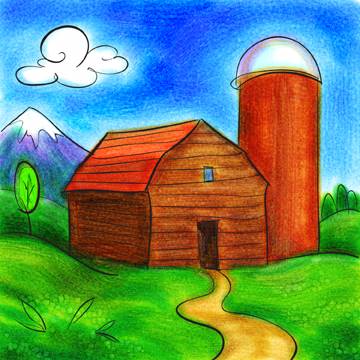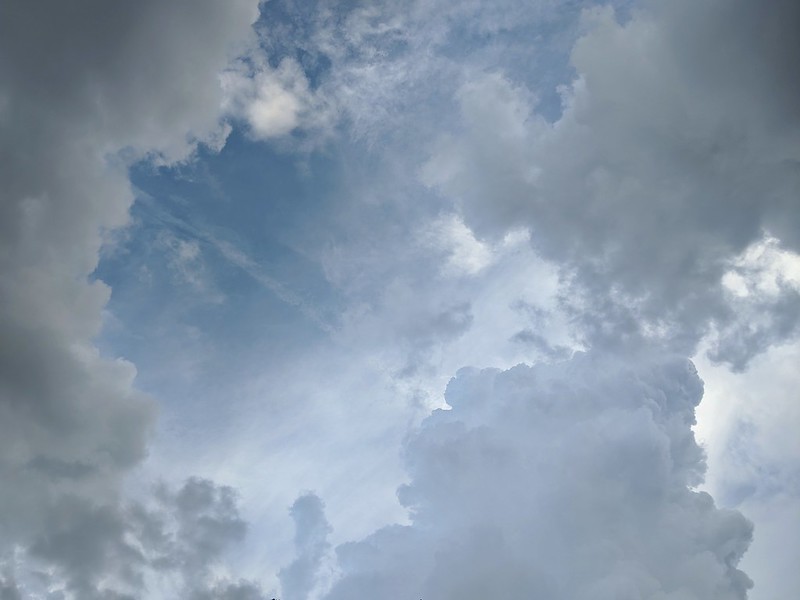I found it impossible to keep such discoveries to myself. When visiting with old friends whose news focused on promotions, divorces, affairs and killings in the stock market, I’d respond to any 'what’s new?' directed my way with a report on some great article I’d just read – an article showing that those notorious 'annual' rings in Greenland’s ice cores weren’t really 'annual' at all, for instance, or a piece discussing the Genesis Flood implications of the world’s polystrata trees.
Usually, my friends just laughed at me, which was fine; I couldn’t expect everyone to be interested in these things. But once in a while a buddy with an interest in science would at least feign curiosity about what I had to say.
One example was a beautiful and brilliant ad-industry acquaintance I’ll call Carla. The last time I saw her, when I was more than a year into my study, we were lunching at a charming country restaurant that would have qualified as a tearoom for Nancy Drew and her chums. She even looked the part, wearing a smart gray suit and creamy silk blouse. I, dressed in my favorite blue jeans and Packer sweatshirt, did not.
After a half hour or so of discussing the usual (Carla’s job, Carla’s tenuous marriage, and Carla’s favorite hobby) she smoothed her perfect blonde pageboy and asked me what was new in my life. She seemed fascinated as I described all the young-earth evidences I’d been reading about.
“Ah, but you’re forgetting something important," she said when I paused to take a bite out of my sandwich. "Radiometric dating. It proves that the universe is billions of years old – which means it makes all this other stuff you’re talking about irrelevant."
Carla wasn’t the first person to bring up this objection, but this time I was prepared for it. Although it’s not the simplest issue, I had studied it until I understood it well enough to discuss it at least semi-intelligently.
“Really?" I said. "That’s interesting. I mean, I’ve heard and read lots about radiometric dating in the last few months, but you’re the first person I’ve come across who actually understands it. How do you figure it proves vast ages for the universe?"
“Well," said Carla, sipping her coffee and glancing at her watch, "I’m not sure exactly how it works. But it’s well accepted by the scientific community."
“Ah," I said. "Can I share with you a little analogy that purports to show how unreliable it is? Maybe you can tell me where I’m going wrong."
“Sure, okay," she said, sitting bolt upright, ready to jump all over my error.
I shoved my plate aside and, grabbing a pen from my purse, drew a pail on my paper placemat and added a wavy line running side to side near the bottom.
“So, what we have here is a plain old five-gallon bucket containing a gallon of water," I said, pointing to the wavy line with my pen. "It’s a leaky bucket, unfortunately, currently losing about a gallon a year. Okay?"
“Got it."
“So tell me, Carla, how long has our five-gallon bucket been sitting here?" I asked, adding a tree, a barn, and a sun to my sketch.
“The obvious answer would be, let’s see – leaking a gallon a year, one gallon left, I guess we’d say it’s been sitting there for four years. But that’s not necessarily the right answer."
“Why not?" I asked, smiling at her encouragingly.
“Because we don’t know how much water it contained originally," she said, returning my smile and leaning back in her chair.
“And?"
“And? Hmmm. Well, we’re assuming that no water has evaporated."
“Right. What else?"
Carla leaned forward again, frowning a little.
I drew a black cloud over my sun.
“Of course," she said, almost gleefully. "We’re assuming that it hasn’t rained – that no water has been added to it in that time."
“Good. One more."
She squinted down at my picture. Finally, she shook her head. "I give up."
“We’re assuming that the leak rate has been constant over time – that it has always leaked at a rate of a gallon a year, that the holes haven’t become larger from vandalism, say, or smaller from mineral deposits."
Carla tilted her head and nodded. "Good point. But without any more data, of course, we have to make these assumptions, don’t we?"
“Exactly," I said triumphantly. "Which is apparently what happens with radiometric dating."
She stared at me. "How do you figure?"
“Well, I may be wrong, but it’s my understanding that there’s no way to know what the original radioactivity levels were in the rocks being dated … that there’s no way to know whether some radioactive material might have been lost to, for instance, rain and flooding … and that there’s no way to know whether some radioactive elements might have been added by leeching from other rocks, or by daughter isotopes –"
“Okay, enough," Carla said. She wasn’t smiling. "I don’t know enough about this to respond, so you’re wasting your time and mine."
“Okay," I said. "'I was just going to add, 'so they have to make assumptions in each of these areas –'"
“Yes, I get it. And those assumptions can throw off the readings." She checked her watch again and stood up abruptly. “I’ve gotta get going,” she said, taking a twenty out of her purse and tossing it on the table. "Lunch is on the agency. Take care, now."
She was gone before I had the chance to deliver the punch line: that this is probably why radiometric dating so often delivers erratic results, assigning vast ages to materials known to be young – and that evolutionists routinely discard dates that don’t jive with their long-ages philosophy. As a result, it looks to us laymen like radiometric dating tells a mostly consistent story about an old, old earth.
Nor did I have a chance to thank Carla for lunch, and so far I haven’t had another opportunity to do so in person. My emails to her go unanswered.
Not that it’s a big deal. We were hardly close friends, and there’d never really been a business relationship of any importance between us.
But to this day it makes me sad that someone committed to the evolutionary idea refuses to entertain any criticism of her theory – especially a criticism wielded by a Christian.
Not long after this incident, I read the book of Matthew, the first of four New Testament gospels. There, in chapter 10 verses 34-36, I found that Jesus had warned His followers to expect such discord, even from those we have been closest to: "Do not think that I came to bring peace on earth. I did not come to bring peace but a sword. For I have come to set a man against his father, a daughter against her mother, and a daughter-in-law against her mother-in-law; and a man's enemies will be those of his own household."
Strange as it may sound to most people, this passage was immeasurably comforting to me.
(from Heaven Without Her, pages 110-113)


 RSS Feed
RSS Feed